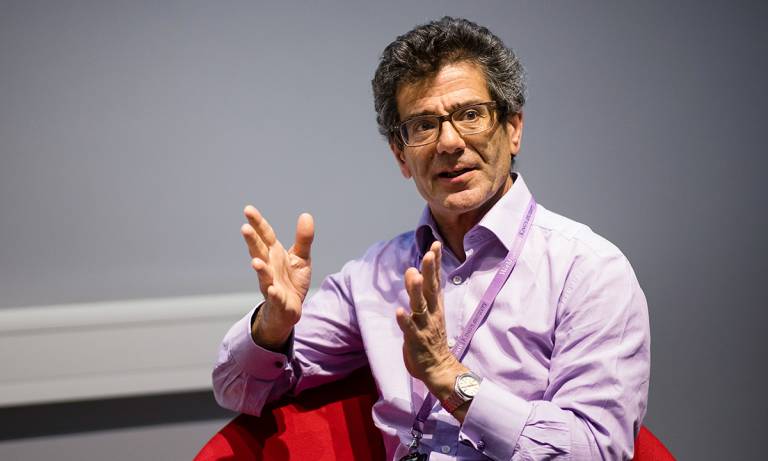Supporting mental health requires more than awareness
12 May 2021
Supporting mental health requires concrete actions and increased funding, says Professor Anthony David, director of the UCL Institute for Mental Health, in a Q&A to mark Mental Health Awareness Week.

Professor David said: “We have actually come a long way when it comes to awareness, but that we now need to move on from awareness – to action.
“There are three pivotal areas where these actions need to take place. The first is upping Government funding into research and support. The second is directing philanthropic donations and time into meaningful action, and the third is changing perceptions of the practice.
“If we compare the funding given by Governments over the decades for mental health research, it pales into insignificance when we look at the money invested in physical health. This is a well acknowledged mismatch. But I also see the mismatch applying to people’s readiness to put their hands in their pockets to help support health causes. The public is much more likely to fund areas such as cancer, for example, than raising funds or giving support to mental health research.”
Professor David continued to say that mental health is on a spectrum that can span from poor mental well-being to serious mental illness, and when talking about mental health, it is important to clarify the differences between wellbeing and everyone’s mental health, or specific mental illnesses.
He said: “While we have learned that there are many wellbeing enhancing activities such as communing with nature, physical exercise, singing in a choir, being creative, helping others – any of which may stave off mental illness – for those struggling with a mental disorder, advice to partake more in such activities fails to hit the spot. There is a danger that such disorder is trivialised. We don’t expect fresh air to cure cancer so why would it cure depression or schizophrenia?”
Professor David commented on the persistent stigma around mental illness, while mental health is also being increasing discussed, particularly in the context of COVID-19 lockdowns. UCL studies have highlighted how lockdowns can be worsening mental health symptoms and increasing anxiety levels in the community, while COVID-19 itself can also have neurological complications.*
“No aspect of our bodies or our lives is immune to the coronavirus pandemic. This is certainly the case for mental health, with some experts warning about an impending wave of mental health problems, although it’s too early to know for sure what the long-term mental health effects of COVID-19 may be,” he said.
“However, I should emphasise that it is not all doom and gloom. Human beings are quite resilient, and many may have risen to the challenge.”
Professor David, who joined UCL in 2018 as the inaugural director of the Institute of Mental Health, mentioned that the university will be in the first wave of applications for a ‘Chartermark’ which will be awarded through the University Mental Health Charter in the UK. Led by Student Minds and Universities UK, the Charter has been piloted but is about to be rolled out more widely.
UCL is a leader in mental health research, as academics across the university are investigating a wide range of mental health topics, including developing new ways to prevent or treat mental illnesses. UCL is also part of a nationwide project bringing together universities and the NHS, to better coordinate care and support.**
Links
- Full UCL Faculty of Brain Sciences Q&A with Professor Anthony David
- Mental Health Awareness Week events at UCL
- * People with mental illnesses report worsening symptoms during lockdown; ‘Psychological toll’ of lockdown peaked in the early weeks; Majority have ‘long Covid’ symptoms seven weeks after discharge
- ** UCL partners with NHS to improve student mental health support
Image
- Professor Anthony David
 Close
Close

